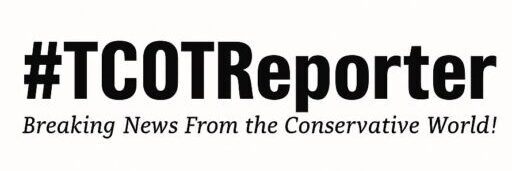How “Nonprofits” Replaced the FEC
If you think campaign finance is regulated, you haven’t met the Sixteen Thirty Fund—the nonprofit that turned ballot measures into a loophole factory. It’s the flagship of Arabella Advisors’ four-fund network, a constellation of 501(c)(3) and (c)(4) shells that move nine-figure sums every cycle. Officially, it promotes “social welfare.” In practice, it bankrolls legislative outcomes the federal system won’t touch.
From 2016-to-2024, the fund spent $100 million+ on ballot measures across 19 states, winning roughly three-quarters of them. The secret sauce isn’t just money—it’s structure: fiscal sponsorship. One donor writes one check; dozens of pop-up “state coalitions” appear overnight with names like Floridians for a Fair Shake or Michigan Families for Economic Prosperity. When the measure passes, the brand dissolves; the cash recycles.
How to Bypass a Federal Ceiling 101
Ballot initiatives are the one place foreign or undisclosed money can legally enter U.S. politics. Candidates can’t take it—but issues can. The Sixteen Thirty Fund exploits that gap with surgical precision:
- No FEC filings. State boards handle disclosures; few require donor transparency.
- Short-life entities. Each “coalition” expires before audits or watchdog requests mature.
- Layered grants. Money moves through sibling funds (New Venture, Hopewell, Windward) to blur its origin.
Result: the same donor can influence abortion law in Michigan, energy policy in Arizona, and election rules in Nevada—all without appearing on a single federal report.
The Ballot Book Strategy
Every measure serves one of three missions:
- Pre-empt federal gridlock — pass policy locally when Congress stalls.
- Shape turnout — use popular causes to mobilize base voters for the midterms.
- Create precedent — force opponents to litigate state-by-state until fatigue sets in.
Think of the Ballot Book as a living manual of workarounds: experiment in one state, replicate in five. When something fails, rename the committee and try again.
Who Writes the Checks and Why It Matters
IRS filings show a handful of donors covering the bulk of operations—six people provided two-thirds of 2022 revenue. One, Swiss billionaire Hansjörg Wyss, has contributed roughly $245 million since 2016 through Arabella vehicles. Because ballot advocacy isn’t “candidate spending,” it skirts foreign-national prohibitions. In effect, a European industrialist can shape Arizona’s election rules legally, so long as the influence arrives wrapped in nonprofit stationery.
Critics call it the left’s “dark-money ATM.” Defenders call it participatory philanthropy. The truth is simpler: it’s a parallel campaign-finance system running on better lawyers.
Republicans Have No Equivalent
Conservative counterparts—85 Fund, Honest Elections Project, etc.—raise tens of millions, not hundreds. They litigate; they don’t legislate by initiative. Without a standing fiscal-sponsorship network, each effort rebuilds from scratch. The right has donors; the left has infrastructure. Guess which scales.
Why Ballot Money Beats Ad Money
TV ads fade; statutory language doesn’t. Once a measure passes, undoing it requires another election or a super-majority legislature. That permanence is the return on investment. It’s why the Sixteen Thirty Fund behaves less like a PAC and more like a policy venture-capital firm—seed 10 ideas, expect 7 to stick, and keep residual control of the nonprofits that wrote them.
Closing the Loop
Every dollar through this system strengthens the broader network:
- America Votes field teams circulate petitions.
- Elias Law Group handles compliance and litigation.
- Chorus influencers sell the narrative online.
Each component feeds the others until “grassroots” becomes indistinguishable from central command.
The federal disclosure regime was built for door-knockers and TV ads. The new game runs on LLCs and PDFs. And for now, only one side owns the playbook.
Citations
- Insurrection Barbie – “The 2026 Ballot Wars” (Oct 2025)
- Ballotpedia – “Sixteen Thirty Fund Ballot Measure Spending Database” (2024)
- NBC News – “Left-Leaning Nonprofit Poured $196 Million into Politics in 2022” (Nov 2023)
- OpenSecrets – “Sixteen Thirty Fund Financial Profile” (2025)
- ProPublica – “Arabella Advisors Network Tax Filings” (2024)

